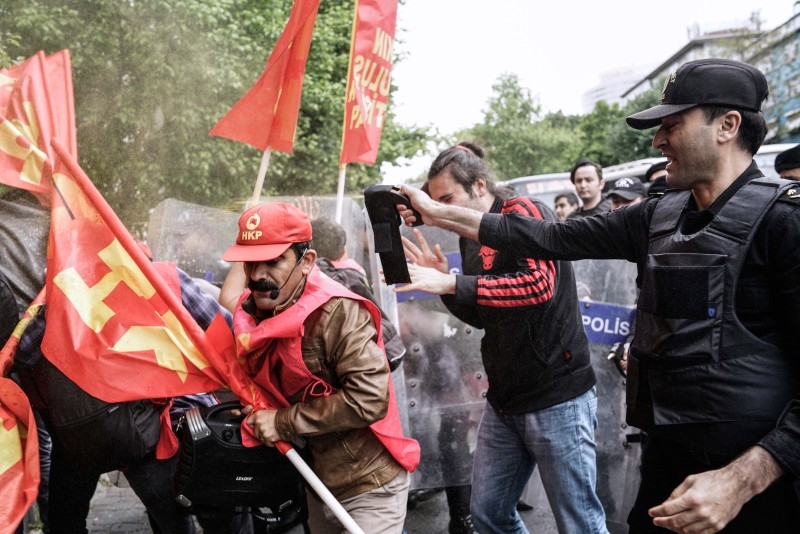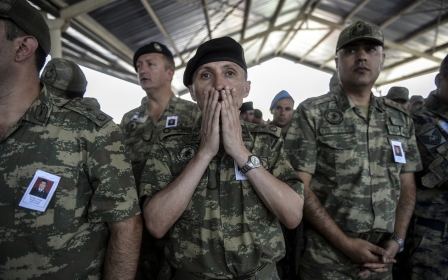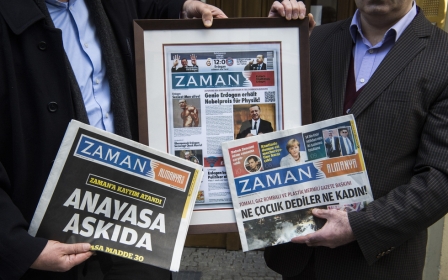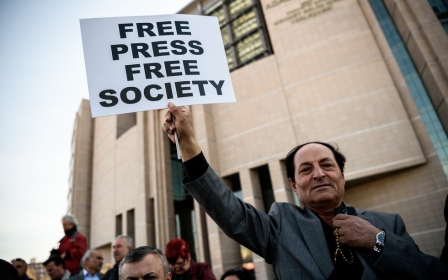One killed as Turkish police lock down Istanbul ahead of May Day marches

A man was reportedly killed by water cannon fire in Istanbul Sunday as police locked down areas of the city in anticipation of May Day marches celebrating International Workers Day.
According to the Dogan News Agency, 57-year-old Nail Mavus was fired on by a water cannon security vehicle while crossing the street in the Tarlabasi area of Beyoglu, near Taksim Square.
He was taken to a hospital in Istanbul’s Sisli district, where he succumbed to his wounds. It is not known whether he had been intending to participate in the marches or why he was fired upon.
There were also reports of tear gas being used on protesters attempting to reach Taksim Square.
Almost 25,000 police on duty and numerous roads closed for an occasion that regularly sees clashes between Turkish protesters and police.
The Istanbul governor's office said in a statement Saturday that in order "to provide for the security of citizens" on labour day, 24,500 members of the Turkish security forces would be on duty in the city.
The metro station on the main Taksim Square was completely closed, and the station at the end of the main shopping street Istiklal Caddesi was closed to exiting passengers.
Security measures are already evident in Taksim Square - a focus for protests in the past - with metal security barriers lining the roads and dozens of anti-riot police present, an AFP correspondent said.
Numerous roads - in particular those leading to Taksim - were also closed.
The authorities, as in previous years, refused to allow an officially-approved demonstration to take place on Taksim Square, likely to lead to more clashes.
The Hurriyet daily reported that police requested all bars and clubs in the Beyoglu area around Taksim, a popular nightlife spot, to close at midnight overnight Saturday to Sunday for the sake of public order ahead of the protests.
Trade unions and labour groups are being allowed to hold an official demonstration on a market site in the outlying district of Bakirkoy, close to the city's main airport.
But this is unlikely to attract the attention of the anti-government leftists, who will likely try to protest in areas around Taksim and Besiktas on the Bosphorus.
May Day comes at a time of particular tension in Turkey after a succession of deadly attacks this year blamed on Islamic State and Kurdish militants.
Controversy is also growing over the rule of President Recep Tayyip Erdogan, whom critics accuse of increasingly authoritarian tendencies.
Several foreign missions have warned their citizens over the risk of violence in Istanbul on 1 May, with the US embassy warning of the "potential for violent confrontation between demonstrators and security personnel".
On 1 May last year, Turkish police used water cannon and tear gas to disperse May Day protesters in Istanbul, while police and demonstrators engaged in pitched battles in some areas.
Parliament last year passed a controversial security bill giving the police greater powers to crack down on protests.
Taksim has been a flashpoint for clashes on International Workers Day since dozens of people were killed there on 1 May, 1977, when modern Turkey was going through one of its most turbulent periods.
International Workers Day has been celebrated by anarchists, communists and other socialist and labour activists since the late 19th century, in commemoration of the Haymarket Affair of 1886 in which police fired on protesters during a strike in Chicago.
Middle East Eye propose une couverture et une analyse indépendantes et incomparables du Moyen-Orient, de l’Afrique du Nord et d’autres régions du monde. Pour en savoir plus sur la reprise de ce contenu et les frais qui s’appliquent, veuillez remplir ce formulaire [en anglais]. Pour en savoir plus sur MEE, cliquez ici [en anglais].




